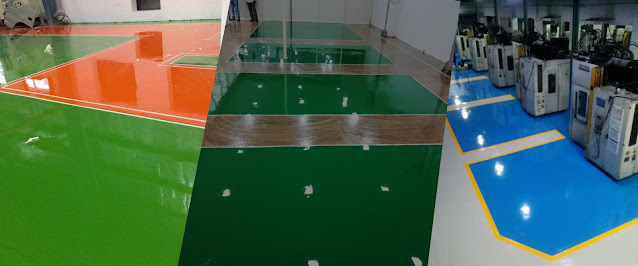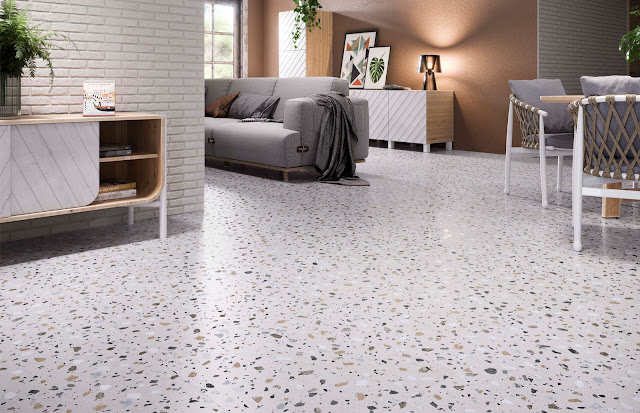Industrial Epoxy Flooring: The Ultimate Guide to Long-Lasting, High-Performance Floors
Industrial epoxy flooring has become increasingly popular in recent years due to its durability, high-performance, and aesthetic appeal. Epoxy is a type of resin that is applied to concrete floors to create a strong, seamless, and easy-to-maintain surface. This guide will provide you with all the information you need to know about industrial epoxy flooring.
What is Industrial Epoxy Flooring?
Industrial epoxy flooring is a coating system that is applied to concrete floors to create a hard, durable, and long-lasting surface. Epoxy flooring is made of two components - a resin and a hardener - that are mixed together and applied to the concrete surface. When the two components combine, a chemical reaction occurs, creating a strong and durable bond.
Benefits of Industrial Epoxy Flooring
There are many benefits to using industrial epoxy flooring in your facility, including:
Durability - Epoxy flooring is incredibly durable and can withstand heavy foot traffic, machinery, and equipment. It is also resistant to chemicals, oil, and water, making it ideal for industrial settings.
Low maintenance - Epoxy flooring is easy to clean and maintain. It does not require any special cleaning products or techniques, making it a cost-effective solution for industrial settings.
Safety - Epoxy flooring is slip-resistant, which can help prevent accidents in the workplace. It can also be made with a high gloss finish, which reflects light, creating a brighter and safer working environment.
Aesthetics - Epoxy flooring comes in a wide range of colors and finishes, making it easy to match your facility's decor. You can also add patterns, logos, and textures to the flooring to create a unique and visually appealing surface.
There are several types of industrial epoxy flooring to choose from, including:
Self-leveling epoxy - This type of epoxy is applied to a smooth, level surface and creates a seamless, glossy finish. It is ideal for warehouses, factories, and other industrial settings.
Mortar epoxy - This type of epoxy is made with a mixture of sand and epoxy resin, creating a durable and slip-resistant surface. It is ideal for areas that experience heavy traffic or are exposed to chemicals.
Quartz-filled epoxy - This type of epoxy is made with colored quartz granules that are broadcast over the surface of the flooring. It creates a durable, slip-resistant surface that is ideal for garages, locker rooms, and other high-traffic areas.
ESD epoxy - This type of epoxy is designed to dissipate static electricity, making it ideal for facilities that deal with sensitive electronic equipment.
Maintenance of Industrial Epoxy Flooring
Maintaining industrial epoxy flooring is relatively easy and requires minimal effort. Here are some tips for keeping your epoxy flooring in good condition:
Regular cleaning - Sweep or vacuum the flooring daily to remove dirt and debris. Use a damp mop or floor scrubber to clean the surface with a mild cleaner.
Avoid harsh chemicals - Epoxy flooring is resistant to chemicals, but harsh chemicals can damage the surface. Avoid using acid-based cleaners or solvents on the flooring.
Repair damage - If the flooring becomes damaged, such as chips or cracks, repair it as soon as possible to prevent further damage.
Regular inspections - Inspect the flooring regularly to identify any potential issues, such as cracks or delamination.
Conclusion
Industrial epoxy flooring is an excellent choice for facilities that require a durable, high-performance surface. It is easy to maintain, slip-resistant, and comes in a wide range of colors and finishes. By understanding the different types of epoxy flooring and how to maintain it, you can ensure that your flooring lasts for many years and provides a safe and functional surface for your facility.



Comments
Post a Comment